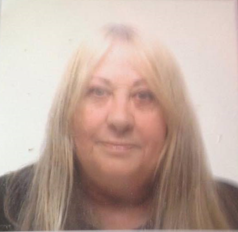Kacey, 65 – Retiree, mother-to-one, grandmother-to-three & COPD patient who survived two episodes of pneumonia, CANBERRA
 Mother-to-one, grandmother-to-three and geocaching enthusiast, Kacey, 65, Canberra, survived two episodes of pneumonia, in 2014 and 2015 respectively.
Mother-to-one, grandmother-to-three and geocaching enthusiast, Kacey, 65, Canberra, survived two episodes of pneumonia, in 2014 and 2015 respectively.
During both episodes, Kacey experienced severe, prolonged coughing attacks. After her doctor tried various medications to manage her symptoms, Kacey was finally placed on beta blocker medication which significantly improved her breathing and restored her energy.
Kacey now has an annual flu shot to help ward off respiratory infections, and encourages her friends who are feeling unwell and exhibiting pneumonia-like symptoms, to visit their doctor without delay.
This is Kacey’s story.
“Having pneumonia feels like you’re drowning. You’re constantly coughing and wheezing,” Kacey said.
Kacey unwittingly developed pneumonia from a flu virus she contracted in May, 2014 following several visits to the doctor.
After contracting the potentially life-threatening infection, Kacey’s friend, who works in healthcare, informed her about the pneumococcal pneumonia vaccination, which is free to Australians aged 65+ and to those living with a chronic illness. Kacey subsequently booked an appointment with her doctor to request both the flu and pneumococcal vaccination.
“I went to the doctor and requested the pneumococcal vaccination after experiencing my first episode of pneumonia,” Kacey said.
“However, three months later, I then contracted a different strain (Morexella) of pneumonia, which lasted for seven months.”
Kacey maintains she contracted the flu from her grandson, which subsequently developed into Morexella pneumonia.
Kacey is considered immunocompromised, because she lives with Type 2 diabetes, asthma, chronic obstructive pulmonary disease (COPD), and sleep apnoea, which puts her at heightened risk of pneumococcal infection.
During the seven months of living with pneumonia, Kacey experienced severe coughing attacks, which triggered ear aches, chest pain and on some occasions, loss of bladder control.
“My cough was so loud and painful, that children were scared of me when I walked past them and coughed,” said Kacey.
During this period, Kacey was bedridden, unable to see her grandson or friends.
“Although I had little help from my family or friends when I was ill with pneumonia, my diabetes educator was very caring, and helped transport me to the doctor’s surgery after hours, when required.
“My pharmacist was also fantastic. She kept tabs on me, and ensured I made regular visits to the doctor,” Kacey said.
Towards the end of the seven months, Kacey was administered a beta blocker to help control her symptoms.
“Within four days of starting the beta blocker medication, I no longer felt like I was drowning, and I could breathe easier.
Post- pneumonia infection, Kacey maintains her voice has been compromised by her severe coughing attacks.
“Should I ever hear someone on the street cough like me, I will stop them and tell them to go to the doctor immediately, because I would hate for them to experience what I have endured.
“I advise those who are at-risk of infection, whether due to age (65+) or chronic illness, to talk to their doctor about how to best protect against pneumococcal pneumonia, including vaccination,” said Kacey.
